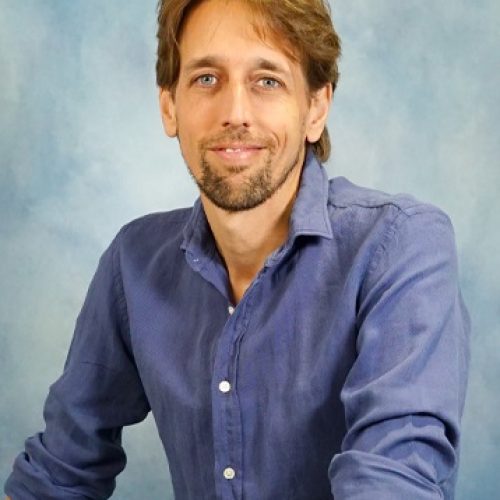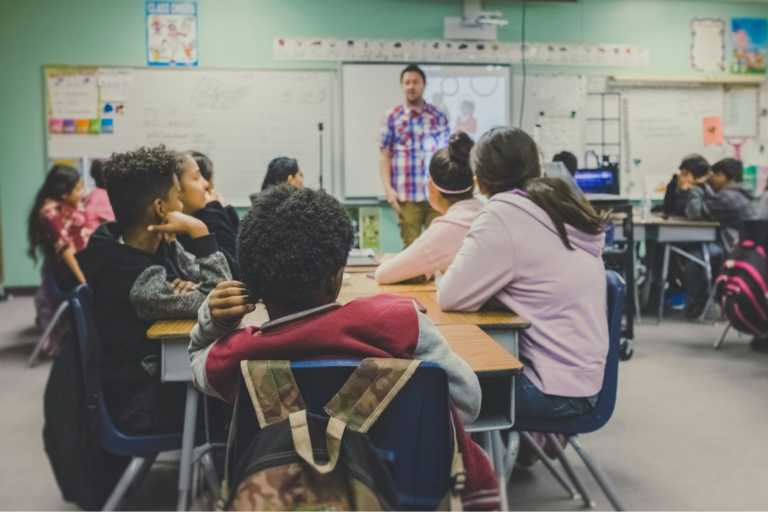
Our education system is designed for a world that no longer exists. The advancements in technology have meant an exponential quantity of information lies at our fingertips, and yet education systems globally still focus on rote learning and the acquisition of facts. This is an exciting age where young people should finally have the option to move beyond tedious and repetitive learning practices. The ease of access to information frees young people to learn real life skills, which can be used to thrive in all aspects of life, not just for passing exams. Yet despite the huge number of technological and social innovations made around the world, school curricula continue to conform to outdated methods.
We must throw away the constraints of the past by overhauling learning, to ensure our young people receive the very best education and in turn, the very best start in life. The focus should be on personal self-determined learning driven by purpose and passions, that explores new competencies and enables pupils to develop self-awareness and emotional intelligence. Only this way will young people be prepared for their futures, post-education.

It is our mission with LearnLife, and [RE]LEARN, our recently held learning innovation festival, to demonstrate that it is possible to change the attitudes towards, and methods of, learning in a profound and engaging way. Our driving force and key aim is that education should be about helping children learn how to thrive as people. This can only happen through collaboration and co-creation – no one person has the answer – which is why we strive to bring together leaders, educators and innovators to ensure learning continues to evolve alongside society.
It is predicted that by 2030, as many as 800 million people could be displaced by automation and 65% of today’s youth will need to either find or create work in areas that do not yet exist. These seismic developments prove why taking action now is so crucial, if the learners of tomorrow are to keep pace with a rapidly changing world.
Our belief is that the solution lies in creating an open learning ecosystem that spreads a new, lifelong learning paradigm composed of digital platforms and physical hubs. Through this hybrid approach, our initial aim at LearnLife is to empower 100 million learners and 100,000 schools by 2030, enabling them to integrate creative learning elements into their own projects. This offers educators the ability to update their own curricula to match the needs of today’s world, allowing them to know they are preparing their pupils properly for the future.
The goal is not to simply teach young people the skills that will make them employable in an ever more automated society, but to also deal with other large gaps in education, such as social and emotional learning. Young people should be taught how to deal with mental health issues and how to interact in a positive way with each other. The spike in mental health problems over the last decade proves that this is more important than ever, yet still it is hardly touched on in schools worldwide.
Another important part of this process is building a large community of change leaders and learning innovators who can accelerate the collaborative research process and the development of a new learning paradigm. There needs to be a constant open conversation between educators and industry leaders, as only then will the skills being learned in schools match the skills that will be needed in the real word. The traditional system, with its focus on standardisation, examinations and delivering content, bears little relevance to the emerging workplaces. Therefore, by starting a conversation between decision-makers in education and the innovators guiding the future of work, we can ensure that schools are consistently providing young people with the skills they will genuinely need for their future.
The movement has to be grassroots and it is LearnLife’s mission to be a catalyst within this movement for change. United, we will initiate change for good, but divided the status quo in schooling will grind to a slow and damaging stop. We have the opportunity to shape the future of learning – and LearnLife endeavours to be a community with an optimistic picture of what modern learning could be and the ability to show it in practice. We envision a future where every human is part of a lifelong learning community that empowers them to co-create a positive future.
There are so many problems ahead for our younger generations, from automation to the climate crisis, so we owe it to them to ensure we equip them in the best way we can. In the end, these are all challenges that can be overcome, but only if we work together to make the necessary changes.

Christopher Pommerening
Founder and Chief Empowerment Officer of LearnLife



